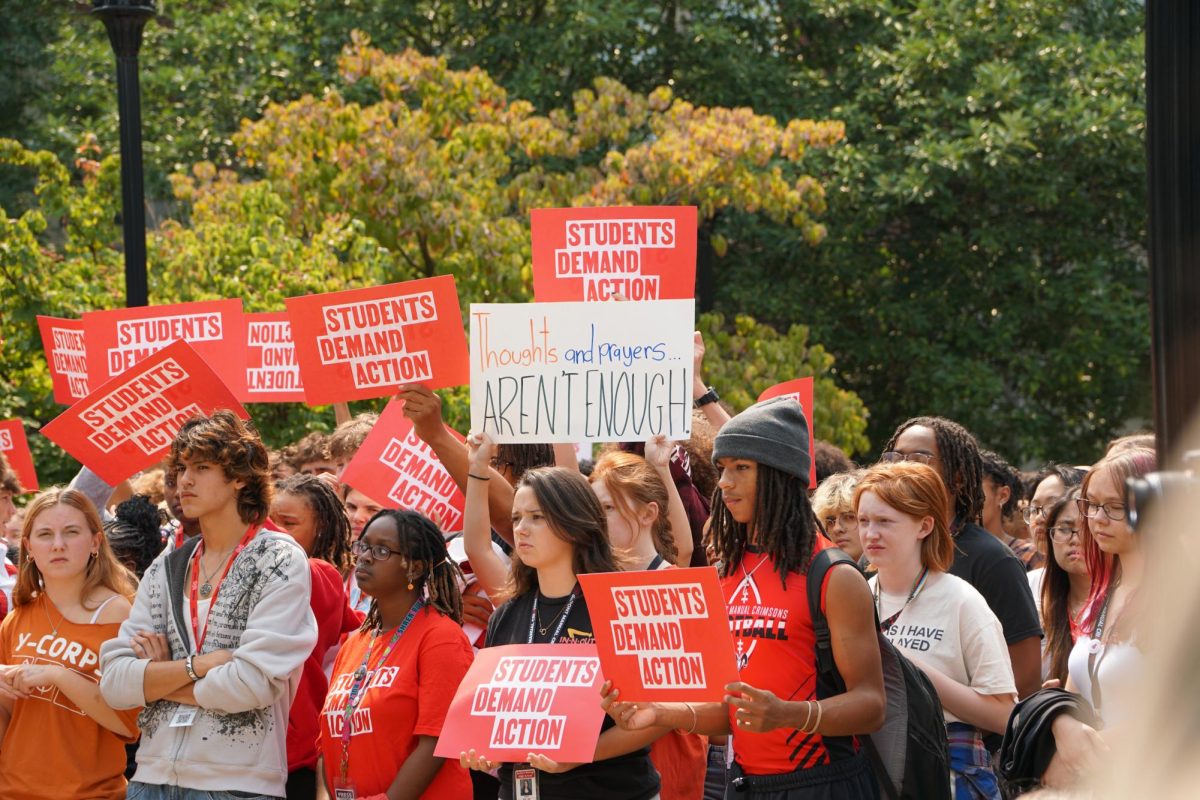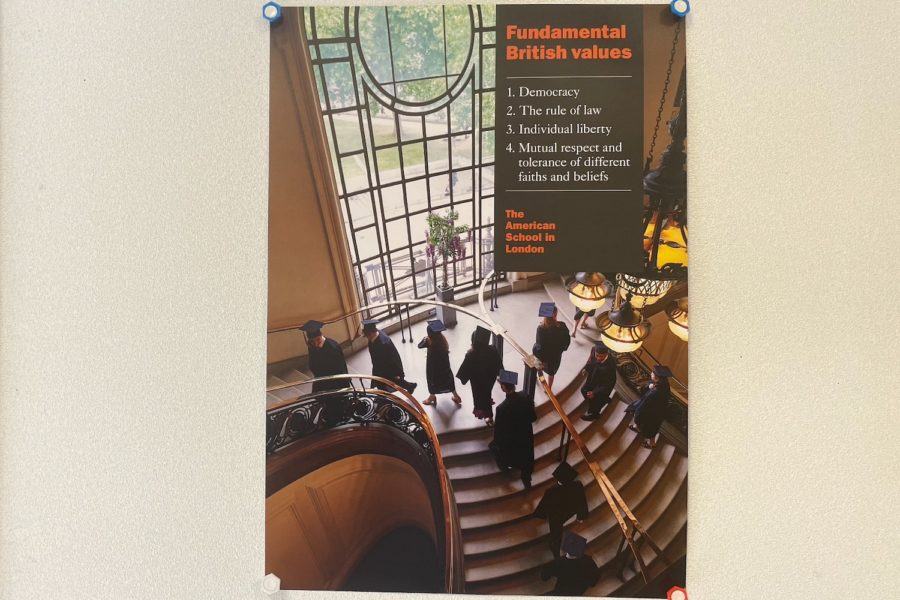In tandem with the commencement of the 2022-23 school year, the school introduced a series of pedagogy, student life and curriculum changes adhering to requirements outlined by the Office for Standards in Education.
In March, Ofsted released a report downgrading the school from a rating of “Outstanding” to “Requires Improvement” on account of failed standards in three categories: leadership and management, quality education and personal development. Following Ofsted’s scheduled inspection of the school in December 2021, the administration submitted a required Action Plan April 11 to identify concrete steps in meeting educational criteria, according to an email to the community April 29 by Interim Head of School Coreen Hester.
Changes implemented
Principal Devan Ganeshananthan said adhering to Ofsted requirements is compulsory given the school’s location in the U.K., despite its provision of traditionally American education.
“We have to honor our host country and we are being inspected by the host,” he said.
To execute the steps outlined in the Action Plan, the school required faculty and staff to undergo political impartiality training, in which teachers must refrain from sharing personal opinions in a classroom setting. In line with political impartiality, all decoration was removed from hallways and classroom walls with the exception of student work and curriculum-based material, Ganeshananthan said.
Teachers must also submit a comprehensive outline of their curriculums to ensure accessibility and transparency. A new speaker policy was similarly implemented, where non-faculty visitors are required to sign a preemptive agreement to provide balanced viewpoints. Within student life, affinity groups must become all-inclusive, regardless of background or identity.
To solidify and document the course curriculum, Ganeshananthan said teachers created a comprehensive program reference at the beginning of the new school year through Atlas Curriculum Mapping.
“When we had the inspection in December, we did not have curriculum ready and documented to show to the inspectors,” he said. “Creating one document for teachers to store their curriculum is not conceptually challenging, but more logistically challenging. We defined curriculum mapping as a priority and provided teachers with a good amount of time to focus on that.”
In terms of political impartiality, Ganeshananthan said faculty and staff attended training sessions in April and August.
“Teachers have the responsibility to present a balanced viewpoint and perspective,” he said. “We couldn’t have a teacher teach that communism is the best way to govern, but they could suggest that communism is one form of government that some nations and countries use before looking at some other forms of government.”
Ganeshananthan said the changes introduced are “elements of best practice” and thus, align with the school’s overarching mission.
Sara Kim (’24) said she understands the necessity of complying with Ofsted’s requests as an institution in the U.K., but said the organization might not recognize the school’s distinctive position.
“To some degree, we have to follow the rules and regulations that we must have as a school,” she said. “At the same time, we are a unique school in the way that we’re international, so we also have to adhere to some of those protocols that keep us true to our school.”
From an administrative perspective, Ganeshananthan said all changes implemented were placed “against the backdrop and core values of the school.”
Rohan Schonfeld (’26) said a “more neutral teaching environment” that avoids “one side being presented as the truth” has been perceptible.
On the other hand, Kim said the changes are ineffective at promoting student voice – a core value of Ofsted – as classroom settings feel “forced” and “artificial” because the organization has preordained the “dynamic that must be in place.”
Further, Kim said the Ofsted changes seem to shift the presentation of subject matter instead of the core of learning.
“They’re changing the social justice framework, but it seems like they’ve just changed the vocabulary for it,” she said. “We’re kind of dancing around the same idea, but just using different terms.”
Kim said some changes may strip the school of its unique identity as an international school and will have a ripple effect on the wider community.
“I don’t think that we should be changing our whole philosophy just for a good report, or just so that we’re not slammed in the media,” she said. “Changing the values and changing the fundamental aspects of our school just for this Ofsted report is damaging the overall ASL community.”
Community impact
Ganeshananthan said the collective shift to prioritizing student voice is one to which many will need to grow accustomed.
“It is human nature to want to share [opinions],” he said. “That means this is a marked change from how the school has been.”
Kim said a “divide within the student body” is palpable, particularly around the new climate Ofsted has introduced.
“Unfortunately, we are seeing more of, like, a shift to a tense relationship between different points of view,” she said. “I can see more controversial feelings around the whole topic and it’s almost taboo to mention Ofsted.”
Conversely, Schonfeld said the Ofsted changes have created space for voices previously unheard.
“There’s a kid who had more right-wing views who was often like shunned sometimes outside the classroom or just told he was wrong,” he said. “The Ofsted changes should hopefully help that. I don’t understand all of them and why they are, but for the most part, I think I agree with them.”
On the whole, Schonfeld said the community is remarkably liberal, and that dominant narrative can overpower conversation.
“The way the school works is that everyone has the same ideas,” he said. “Because everyone has similar beliefs, it’s hard for the people who don’t to speak up.”
Further, Kim said students opposed to Ofsted changes have shifted culpability to teachers.
“While teachers have made a lot of changes that students aren’t happy about, that’s not the teacher’s fault,” she said. “It’s people instructing them to change the curriculum in whatever way and not the teachers themselves.”
Generally, Kim said she has observed “more stress” among teachers in her classes, citing disclaimers about the curriculum or passive comments from teachers about the impact of changes in the classroom.
“There’s just been a lot more pressure put on them in terms of the curriculum they have to teach and a hyper-awareness of the exact message that’s going to be relayed on to the students,” she said.
In terms of the visible changes to the High School, Ganeshananthan said the environment in which students learn is distinct from previous years, which has spurred dialogue among the student body.
“You’re coming in, perhaps, to a space where you’ve seen different things and you’re wondering why that is,” he said. “Teachers having to take quotes down in classrooms, solely feature student work or curriculum-based material or having the teacher remain completely politically impartial – those are going to be the most noticeable changes.”
Going forward
In an assembly Sept. 14, Interim Head of School Coreen Hester shared the Ofsted report and the changes introduced to address the required criteria for the High School.
Schonfeld said he deems the administration’s communication of Ofsted requirements “refreshing.”
“I really respected it,” he said. “The problem was being presented to us clearly along with exactly what they were changing.”
On the other hand, Kim said the causation and decision-making behind the efforts taken have been ambiguous.
“It would be helpful to have more transparency in terms of what exact action is being done and the reasons behind that action so that we can understand the decisions that are being made,” she said.
Kim said while she recognizes transparency can result in students expressing “explicit discontent with actions,” it is crucial to foster a community more accepting of change.
Ultimately, Kim said the changes are a “layered topic” and require combining Ofsted requirements with school identity.
“The student body should empathize with our teachers and with the people who are trying to make changes,” she said. “We need to find a way to both satisfy Ofsted to a certain degree, but then keep true to our ASL values.”
Timeline of Ofsted inspection, subsequent changes:
This story was originally published on The Standard on September 30, 2022.






































